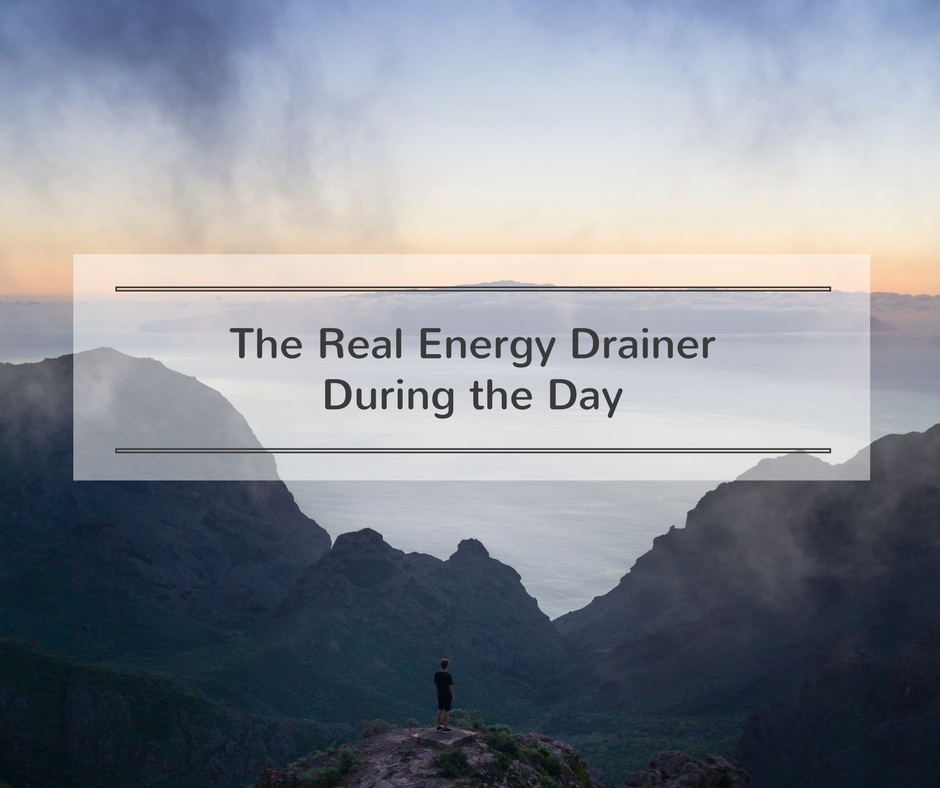
At first I didn’t think this applied to me. I didn’t realize I was expending more energy than I needed to—in more ways than one.
I tend to focus my eyes intently when I’m reading, writing, watching or talking—and especially more so when I’m working or concentrating on something. Sometimes, I inadvertently furrow my eyebrows and squint, which increases the pressure. It’s become a habit—a mannerism done unconsciously.
No big deal right? Well, let’s just say it’s actually a bigger deal than I thought.
It blew my mind to realize the real energy drainer during the day.
In the past week while reading a book by Dale Carnegie, I learned that mental fatigue doesn’t really exist. Learning or thinking can theoretically go on for many hours—past the eight or nine hour normal work day. Assuming a controlled environment, the brain can go on until the body needs to rest at the end of the day.
But on many nights, I find myself both physically and mentally exhausted. My mind is overwhelmed, cluttered, and unable to think clearly anymore.
According to Mr. Carnegie and referenced medical experts, that doesn’t have to be the case.
The brain is nearly inexhaustible in its processing; but when the body is tense, your reserves and clarity of mind are depleted faster. And supposedly the eyes are the most important organ and often where the tension starts!
I had no idea just how much energy I was unnecessarily expending with my eyes and body.
When your eyes are strained, you tend to squint and your eyebrows tend to furrow. When your eyebrows are furrowed you tend to frown. Then your shoulders then tense and you end up hunched over. All that nervous tension in the body translates to more stress, more energy usage and lower energy at the end of the day.
But even if you’re not squinting or furrowing your brows, you can still be straining your eyes. I discovered this when I closed my eyes and told my eyes to relax. As I kept on telling them to relax, I noticed that some micro tension, something that I had never noticed, started slipping away from behind and between. Upon opening them, they felt so much lighter. And as I gazed at the computer screen and continued to tell my eyes to relax, there wasn’t as much as a tightness as there used to be. It was a bit more easy, relaxed.
I realized I’d spend more than seven hours some days straining my eyes at the computer while working or simply browsing online. Sometimes my eyes feel so worn and heavy, I’d rub at my eyes to relieve the pressure at night.
I was floored. Perhaps the work wasn’t so tiring after all. The real energy drainer was how I was working. In learning how to use my eyes in a relaxed manner, working felt more effortless than before.
When you focus on relaxing while working, work doesn’t feel as taxing.
This doesn’t mean you’re not concentrating. You might find it difficult to concentrate without tensing your body, as you may have gotten accustomed to pairing the two actions together. Sometimes when I’m trying to relax while reading and understanding something, I find I need to read it a couple more times than usual. As you learn to use your eyes and work without straining, you’ll find you will have more energy.
In many ways, I think fear and worry—the perspective you use to view the world—are just like this habit of straining the eyes. The same way I was exerting more energy than I needed to with my eyes, I was doing the same thing with how I chose to view my situation.
Everything you do in life is a habit.
There are productive habits; there are less productive habits. While habits are hard to break, if you have the conscious will to break them, you will.
I’ve been consciously working to not strain my eyes while working, watching or talking to others. I’ve been consciously choosing action and belief when I’m feeling fear or worry.
Now when I read something, I will periodically tell my eyes to relax, and check in on any tension in my shoulders. Instead of squinting, I’ll simply gaze in an easygoing yet alert manner. There’s less urgency and intensity in my work, but I don’t feel like I’m working any slower than I was before.
And overall, the impacts have been noticeable. My energy levels are a little better than they were before. The fears and worries are more at bay. But as with any habit, these need to be practiced. Habits need to be continuously reinforced with discipline and attention.
It’s amazing how a simple shift can make such an impact. Sometimes, it really does come down to the small things.